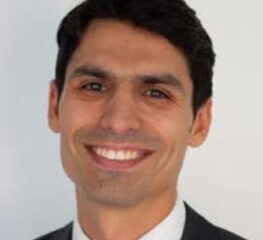Dr. Masurkar is an Assistant Professor of Neurology at NYU Langone Health. He earned his BS in Electrical Engineering at MIT, focusing on the mathematical description of signal flow in circuits. Interested in the biomedical applications of this theory, during his MD/PhD at Yale University he conducted thesis research in olfactory bulb circuit physiology under Dr. Wei Chen. This was followed by neurology residency and clinical fellowship in behavioral neurology and neuropsychiatry at Columbia University, where he developed a clinical interest in Alzheimer disease (AD). Inspired by links between olfactory deficits and early stages of AD, which affects the entorhinal cortex and hippocampus, Dr. Masurkar also conducted postdoctoral research in entorhinal-hippocampal physiology under Dr. Steven Siegelbaum at Columbia. There, he elucidated how spatial and non-spatial inputs from entorhinal cortex preferentially engage different subpopulations of hippocampal CA1 pyramidal neurons. Now at NYU, in his own lab he is exploring how this functional connectivity evolves in normal aging, degenerates in early AD, and leads to symptoms. With support from the Levy fellowship, he hopes this work will inspire a better understanding of memory and new therapeutic approaches for patients with Alzheimer disease.



